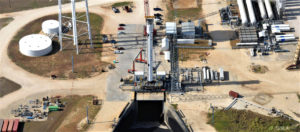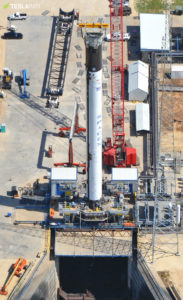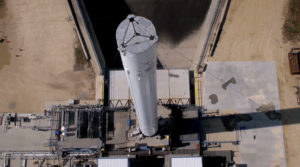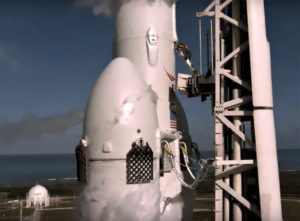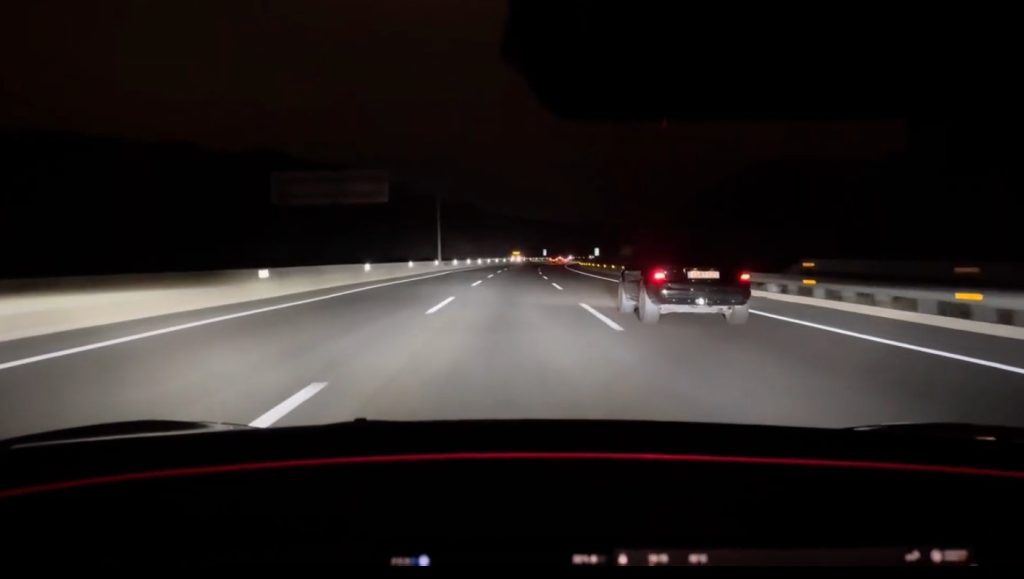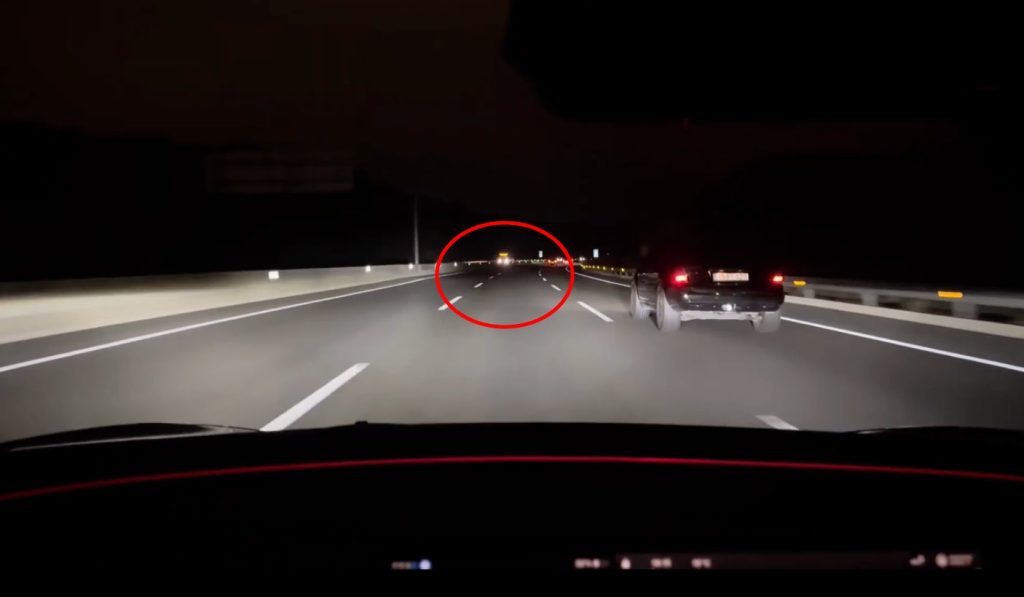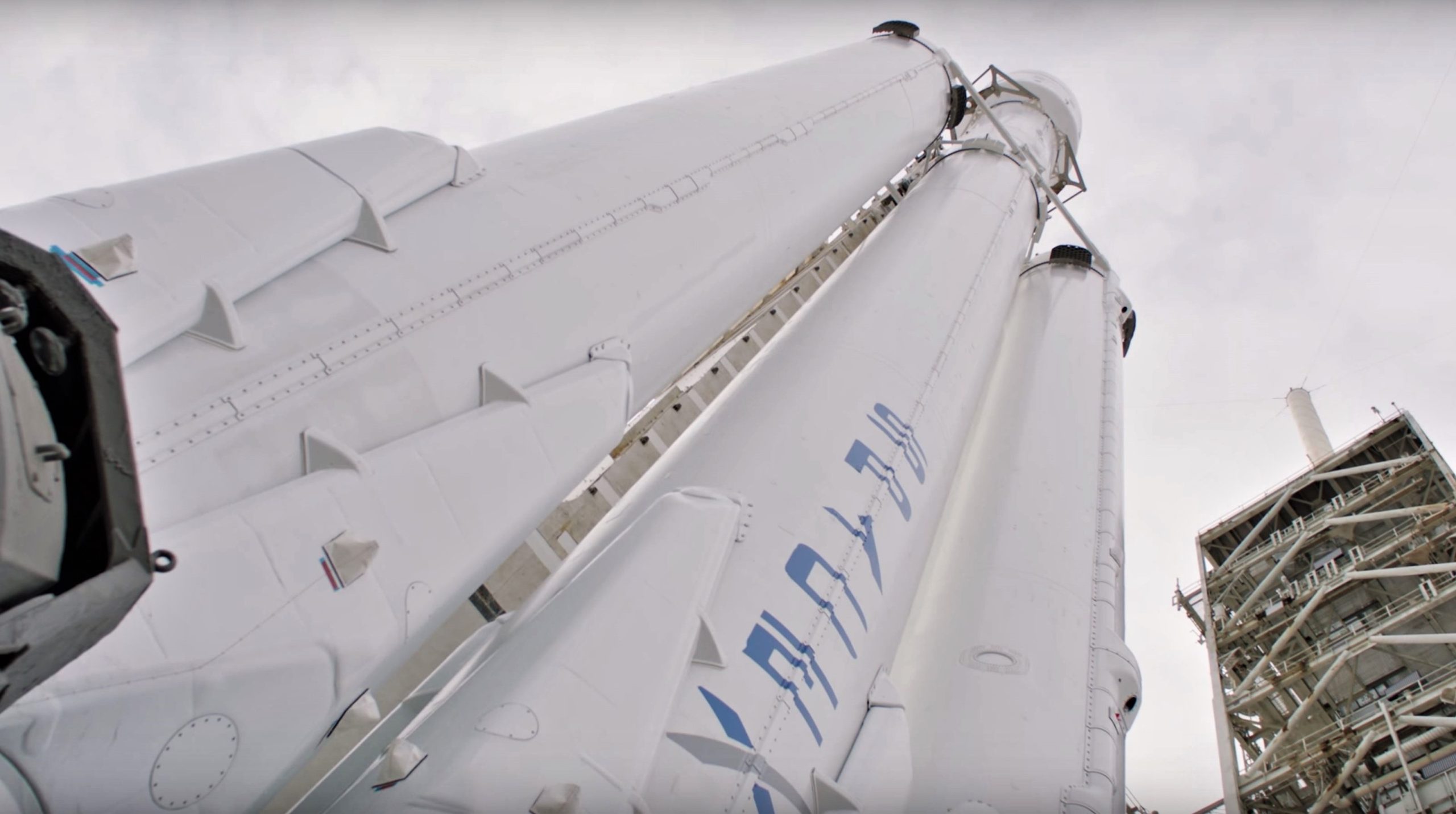
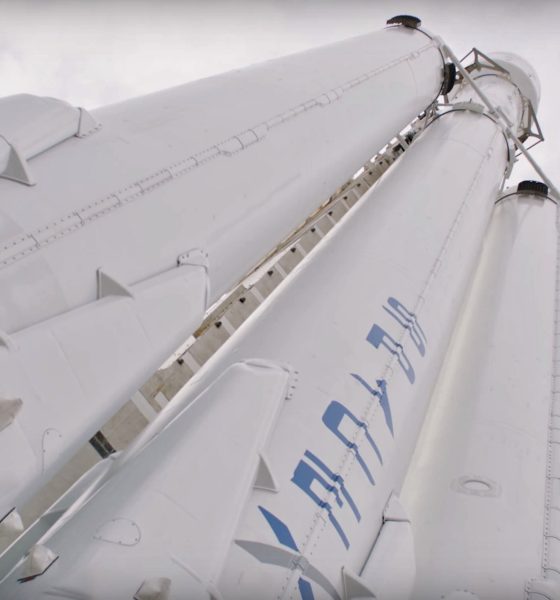
News
SpaceX’s next Falcon Heavy side booster arrives in Texas for hot-fire testing
A few days after a brief appearance in Arizona, SpaceX’s next Falcon Heavy side booster has been spotted vertical at the company’s McGregor, Texas first stage test stand, likely just days away from the rocket’s first static-fire ignition test.
By all appearances a newly manufactured booster, this hardware is the first public evidence of serious preparations for the second flight of SpaceX’s Falcon Heavy.
Look who was waving at passing planes over McGregor today!
A Falcon Heavy side booster on the McGregor test stand for a static fire test. pic.twitter.com/S7af6b0gHk
— NSF – NASASpaceflight.com (@NASASpaceflight) November 18, 2018
Taking as little as a week to go from SpaceX’s Hawthorne factory to its McGregor first stage test stand, this Falcon Heavy side booster appears to be a new rocket, barring the possibility that it’s an older flight-proven booster that has since been modified extensively with Block 5 hardware and had all visible soot cleaned off.
Most notably, if this booster is not effectively identical to any given Falcon 9 Block 5 first stage, widespread changes to avionics, software, and firmware would be required to ensure compatibility between an older variant of Falcon 9 and its Block 5 predecessors. Among countless other changes, Falcon 9 Block 5 features a ~10% thrust increase, an almost clean-slate avionics refresh, and major structural upgrades throughout the booster.
- SpaceX tests all new Falcon 9 boosters and upper stages in Texas before launch. (Aerial Photo/Teslarati)
- B1047 captured testing in McGregor, Texas, April 2018. (Teslarati/Aero Photo)
- A pre-Block 5 Falcon 9 conducts tests at SpaceX’s McGregor testing facility in central Texas. (SpaceX)
- Falcon Heavy is seen here lifting off during its spectacular launch debut. (SpaceX)
With almost a full year now expected between Falcon Heavy’s first and second flights, the chances that the second vehicle wont be entirely composed of Block 5 hardware are slim to none. Anything less than a sort of fixed Falcon Heavy design would undoubtedly make it harder for SpaceX to certify the heavy-lift rocket for both NASA and USAF launches in the eyes of each agency, much like both have struggled to bend their highly inflexible certification requirements to SpaceX’s strategy of continuous hardware and software improvement.
SpaceX's second Falcon Heavy is slowly but surely coming together 😀 https://t.co/AYJsQ8Mld5
— Eric Ralph (@13ericralph31) November 13, 2018
Ultimately, the fact that an entire side booster is already preparing for static fire tests in Texas suggests that Falcon Heavy’s second launch is going to come sooner rather than later, implying that the payload will the commercial Arabsat 6A satellite rather than the USAF’s STP-2 rideshare. As of June 2018, Arabsat officially stated that the satellite was expected to launch on Falcon Heavy between December and January, a window that has since slipped into no earlier than (NET) late January 2019.

News
Ford is charging for a basic EV feature on the Mustang Mach-E
When ordering a new Ford Mustang Mach-E, you’ll now be hit with an additional fee for one basic EV feature: the frunk.
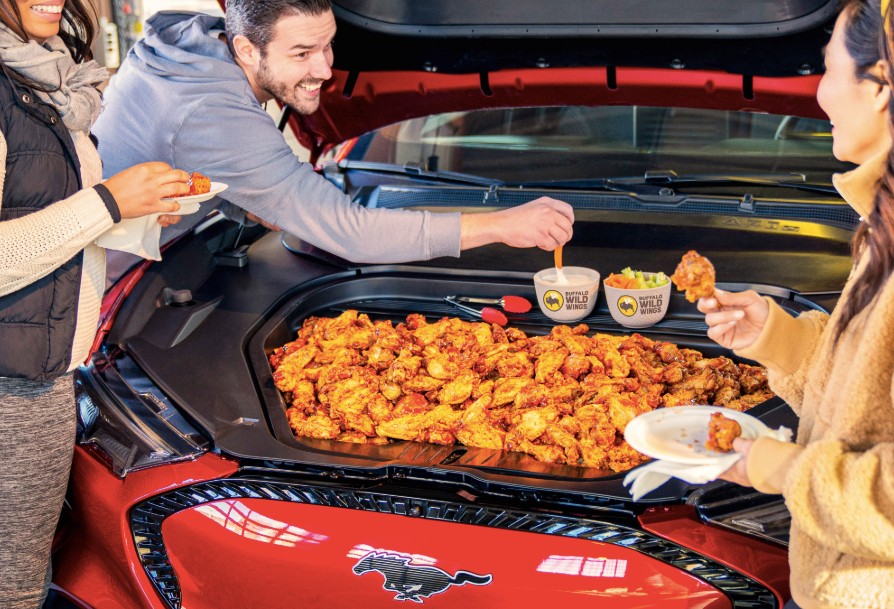
Ford is charging an additional fee for a basic EV feature on its Mustang Mach-E, its most popular electric vehicle offering.
Ford has shuttered its initial Model e program, but is venturing into a more controlled and refined effort, and it is abandoning the F-150 Lightning in favor of a new pickup that is currently under design, but appears to have some favorable features.
However, ordering a new Mustang Mach-E now comes with an additional fee for one basic EV feature: the frunk.
The frunk is the front trunk, and due to the lack of a large engine in the front of an electric vehicle, OEMs are able to offer additional storage space under the hood. There’s one problem, though, and that is that companies appear to be recognizing that they can remove it for free while offering the function for a fee.
Ford is now charging $495 on the Mustang Mach-E frunk (front trunk). What are your thoughts on that? pic.twitter.com/EOzZe3z9ZQ
— Alan of TesCalendar 📆⚡️ (@TesCalendar1) February 24, 2026
Ford is charging $495 for the frunk.
Interestingly, the frunk size varies by vehicle, but the Mustang Mach-E features a 4.7 to 4.8 cubic-foot-sized frunk, which measures approximately 9 inches deep, 26 inches wide, and 14 inches high.
When the vehicle was first released, Ford marketed the frunk as the ultimate tailgating feature, showing it off as a perfect place to store and serve cold shrimp cocktail.
Ford Mach-E frunk is perfect for chowders and chicken wings, and we’re not even joking
It appears the decision to charge for what is a simple advantage of an EV is not going over well, as even Ford loyal customers say the frunk is a “basic expectation” of an EV. Without it, it seems as if fans feel the company is nickel-and-diming its customers.
It will be pretty interesting to see the Mach-E without a frunk, and while it should not be enough to turn people away from potentially buying the vehicle, it seems the decision to add an additional charge to include one will definitely annoy some customers.
News
Tesla to improve one of its best features, coding shows
According to the update, Tesla will work on improving the headlights when coming into contact with highly reflective objects, including road signs, traffic signs, and street lights. Additionally, pixel-level dimming will happen in two stages, whereas it currently performs with just one, meaning on or off.
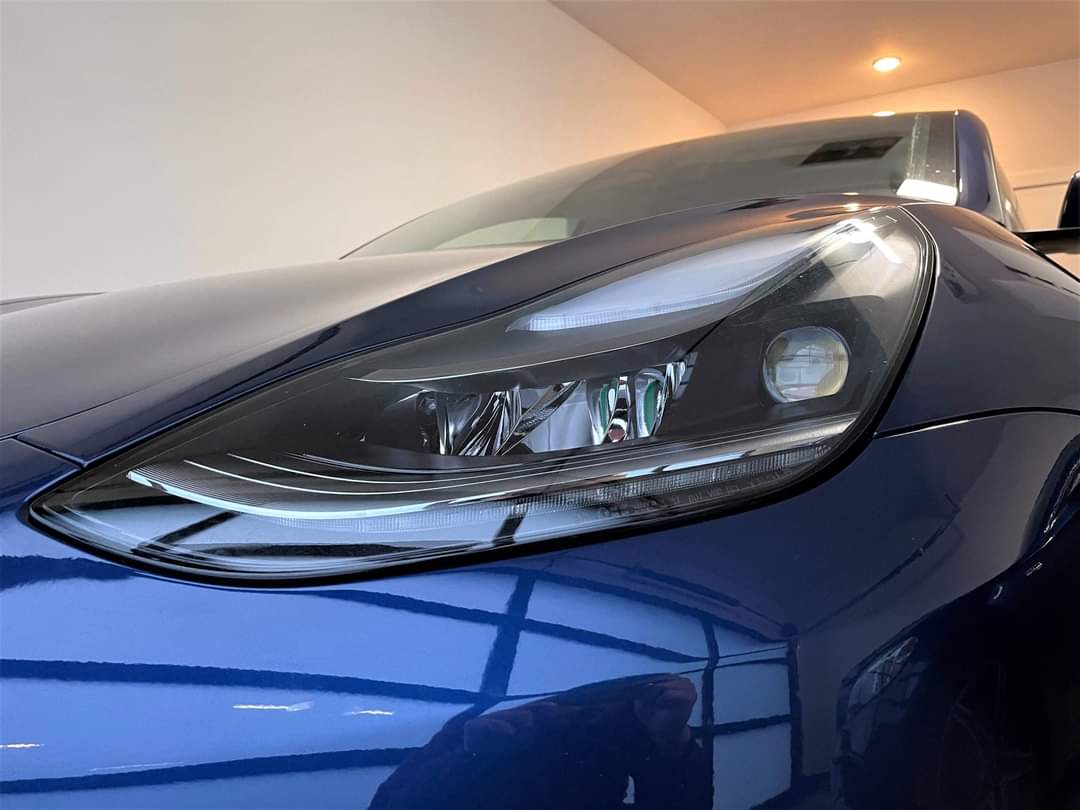
Tesla is looking to upgrade its Matrix Headlights, a unique and high-tech feature that is available on several of its vehicles. The headlights aim to maximize visibility for Tesla drivers while being considerate of oncoming traffic.
The Matrix Headlights Tesla offers utilize dimming of individual light pixels to ensure that visibility stays high for those behind the wheel, while also being considerate of other cars by decreasing the brightness in areas where other cars are traveling.
Here’s what they look like in action:
- Credit: u/ObjectiveScratch | Reddit
- Credit: u/ObjectiveScratch | Reddit
As you can see, the Matrix headlight system intentionally dims the area where oncoming cars would be impacted by high beams. This keeps visibility at a maximum for everyone on the road, including those who could be hit with bright lights in their eyes.
There are still a handful of complaints from owners, however, but Tesla appears to be looking to resolve these with the coming updates in a Software Version that is currently labeled 2026.2.xxx. The coding was spotted by X user BERKANT:
🚨 Tesla is quietly upgrading Matrix headlights.
Software https://t.co/pXEklQiXSq reveals a hidden feature:
matrix_two_stage_reflection_dip
This is a major step beyond current adaptive high beams.
What it means:
• The car detects highly reflective objects
Road signs,… pic.twitter.com/m5UpQJFA2n— BERKANT (@Tesla_NL_TR) February 24, 2026
According to the update, Tesla will work on improving the headlights when coming into contact with highly reflective objects, including road signs, traffic signs, and street lights. Additionally, pixel-level dimming will happen in two stages, whereas it currently performs with just one, meaning on or off.
Finally, the new system will prevent the high beams from glaring back at the driver. The system is made to dim when it recognizes oncoming cars, but not necessarily objects that could produce glaring issues back at the driver.
Tesla’s revolutionary Matrix headlights are coming to the U.S.
This upgrade is software-focused, so there will not need to be any physical changes or upgrades made to Tesla vehicles that utilize the Matrix headlights currently.
Elon Musk
xAI’s Grok approved for Pentagon classified systems: report
Under the agreement, Grok can be deployed in systems handling classified intelligence analysis, weapons development, and battlefield operations.

Elon Musk’s xAI has signed an agreement with the United States Department of Defense (DoD) to allow Grok to be used in classified military systems.
Previously, Anthropic’s Claude had been the only AI system approved for the most sensitive military work, but a dispute over usage safeguards has reportedly prompted the Pentagon to broaden its options, as noted in a report from Axios.
Under the agreement, Grok can be deployed in systems handling classified intelligence analysis, weapons development, and battlefield operations.
The publication reported that xAI agreed to the Pentagon’s requirement that its technology be usable for “all lawful purposes,” a standard Anthropic has reportedly resisted due to alleged ethical restrictions tied to mass surveillance and autonomous weapons use.
Defense Secretary Pete Hegseth is scheduled to meet with Anthropic CEO Dario Amodei in what sources expect to be a tense meeting, with the publication hinting that the Pentagon could designate Anthropic a “supply chain risk” if the company does not lift its safeguards.
Axios stated that replacing Claude fully might be technically challenging even if xAI or other alternative AI systems take its place. That being said, other AI systems are already in use by the DoD.
Grok already operates in the Pentagon’s unclassified systems alongside Google’s Gemini and OpenAI’s ChatGPT. Google is reportedly close to an agreement that will result in Gemini being used for classified use, while OpenAI’s progress toward classified deployment is described as slower but still feasible.
The publication noted that the Pentagon continues talks with several AI companies as it prepares for potential changes in classified AI sourcing.
